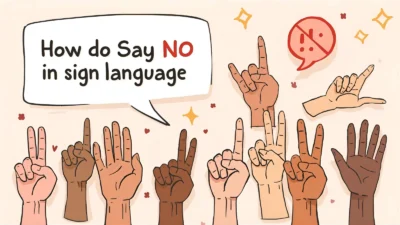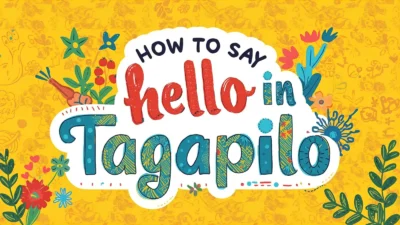How to Say Mom in Spanish is simple and heartwarming, as there are several ways to express love and respect for your mother. The most common word is “Mamá,” which directly means Mom.
In more formal contexts, you might hear “Madre,” while affectionate variations like Mami or Mamita are often used in families. Learning these terms helps you connect more personally and warmly in Spanish conversations.
Say Mom in Spanish
15 Ways to Say Mom in Spanish
| # | Spanish Word/Phrase | English Meaning |
|---|---|---|
| 1 | Mamá | Mom |
| 2 | Madre | Mother |
| 3 | Mami | Mommy |
| 4 | Mamita | Little mom / Dear mom |
| 5 | Mamacita | Mommy (affectionate, sometimes playful) |
| 6 | Ma | Mom (short, casual) |
| 7 | Jefecita (slang) | Boss lady / Mom (playful) |
| 8 | Mi madre querida | My dear mother |
| 9 | Mi santa madre | My holy mother |
| 10 | Mi viejita (affectionate) | My little old lady (loving nickname for mom) |
| 11 | Madre mía | My mother |
| 12 | Mi madrecita | My little mother |
| 13 | Mi mamita linda | My sweet mommy |
| 14 | Mi madre adorada | My beloved mother |
| 15 | Mi mamá hermosa | My beautiful mom |
Here are 15 ways to say mom in Spanish, complete with examples and origins, so you can express love like a native.
1. Mamá

Origin:
The most common and universal word for “mom” in Spanish. Derived from baby talk sounds (like “mama” in many languages), it’s affectionate but standard.
Example:
👤 User A: Mamá, ¿puedes ayudarme con la tarea?
👤 User B: Claro, hijo. Vamos a hacerlo juntos.
Use: Used in almost every Spanish-speaking country. Equivalent to “Mom” in English.
2. Madre
Origin:
The formal word for “mother,” from Latin mater. It’s respectful and often used in writing or formal speech.
Example:
👤 User A: Mi madre trabaja en el hospital.
👤 User B: ¡Qué admirable! ¿Es doctora?
Use: Formal or third-person reference.
3. Mami

Origin:
A cute or affectionate version of “mamá.” Similar to saying “mommy” in English. Common in the Caribbean and among younger children.
Example:
👤 User A: ¡Mami, tengo hambre!
👤 User B: Ven, que te preparo algo rico.
Use: Endearing; used by kids or adults expressing affection.
4. Mamá linda
Origin:
A sweet phrase meaning “pretty mom” or “beautiful mom.” Combines “mamá” + “linda” (beautiful).
Example:
👤 User A: ¡Buenos días, mamá linda!
👤 User B: ¡Qué tierno eres! Buenos días, amor.
Use: Very affectionate; used in personal or emotional contexts.
5. Mamacita
Origin:
A diminutive of “mamá” that literally means “little mama,” but it’s often used flirtatiously in Latin America. Caution: in some contexts, it can be seen as objectifying.
Example:
👤 User A: ¡Esa señora es una mamacita!
👤 User B: ¡Sí, se ve súper elegante!
Use: Be careful! Can mean “hot woman” depending on context.
6. Mami chula

Origin:
A slang term from the Caribbean (especially the Dominican Republic). “Chula” means “cute” or “sexy.” Like “mamacita,” it’s often flirtatious.
Example:
👤 User A: ¿Cómo está mi mami chula hoy?
👤 User B: ¡Travieso! Estoy bien, gracias.
Use: Very informal; often romantic or cheeky.
7. Mamá querida
Origin:
Used especially in Argentina and Uruguay. It means “dear mom” or “beloved mom.”
Example:
👤 User A: Mamá querida, te extraño mucho.
👤 User B: Yo también, mi amor.
Use: Poetic or nostalgic; often used in songs or letters.
8. Mamá hermosa
Origin:
Combines “mamá” and “hermosa” (beautiful). A tender and respectful way to call your mother.
Example:
👤 User A: Mamá hermosa, gracias por todo.
👤 User B: No tienes que agradecer, hijo.
Use: Emotional, often used on birthdays, Mother’s Day, or in dedications.
9. Mi vieja
Origin:
Literally means “my old lady.” In Argentina and some other Latin countries, it’s an affectionate term for mom.
Example:
👤 User A: Che, ¿cómo está tu vieja?
👤 User B: Re bien, preparando empanadas.
Use: Casual, affectionate slang; may sound rude in other countries.
10. La jefa
Origin:
Slang meaning “the boss.” In many homes, mom runs the show—hence the nickname.
Example:
👤 User A: ¿Quién manda en tu casa?
👤 User B: ¡La jefa, obvio!
Use: Playful and humorous.
11. Doña [First Name]
Origin:
In formal Spanish culture, “Doña” is a respectful title for older or esteemed women.
Example:
👤 User A: Doña Carmen cocina delicioso.
👤 User B: ¡Claro, es la mamá de todos en el barrio!
Use: Respectful; used by others referring to your mom, often in rural or traditional communities.
12. Mamá de corazón
Origin:
Means “mom from the heart.” Often used for stepmothers, adoptive moms, or mother figures.
Example:
👤 User A: No eres mi madre biológica, pero eres mi mamá de corazón.
👤 User B: ¡Eso me hace muy feliz!
Use: Deeply emotional and respectful.
13. Mamá oso / Mamá leona
Origin:
Inspired by the idea of a protective animal mom — “mama bear” or “lioness mom.”
Example:
👤 User A: Mi mamá leona no deja que nadie me toque.
👤 User B: ¡Así debe ser!
Use: Used to describe fiercely protective moms, sometimes playfully.
14. Mamá jefa

Origin:
A modern, empowering term that combines “mom” and “boss,” often used to describe working or independent mothers.
Example:
👤 User A: ¡Esa es mi mamá jefa!
👤 User B: ¡Una mujer de admirar!
Use: Empowering; often seen in social media or motivational contexts.
15. Mamá luchona
Origin:
Popular slang in Mexico and Latin America. “Luchona” means a fighter. Originally used mockingly, but has been reclaimed by many single or hardworking moms with pride.
Example:
👤 User A: Mi mamá luchona sacó adelante a tres hijos sola.
👤 User B: ¡Una verdadera heroína!
Use: Modern slang with strong emotional or social context.
Conclusion:
How to Say Mom in Spanish can be expressed in many loving ways, from the common “Mamá” to the more formal “Madre” and the affectionate “Mami” or “Mamita.” These variations allow you to choose the right word depending on context and closeness. By learning them, you can express love, respect, and warmth toward your mother in Spanish.

Liam Bennett is a dedicated content writer who creates clear, engaging, and well-structured articles.
He focuses on delivering practical information that is easy for readers to understand and apply.
Liam Bennett currently writes high-quality content for repliesnest.com, ensuring clarity and reliability.



